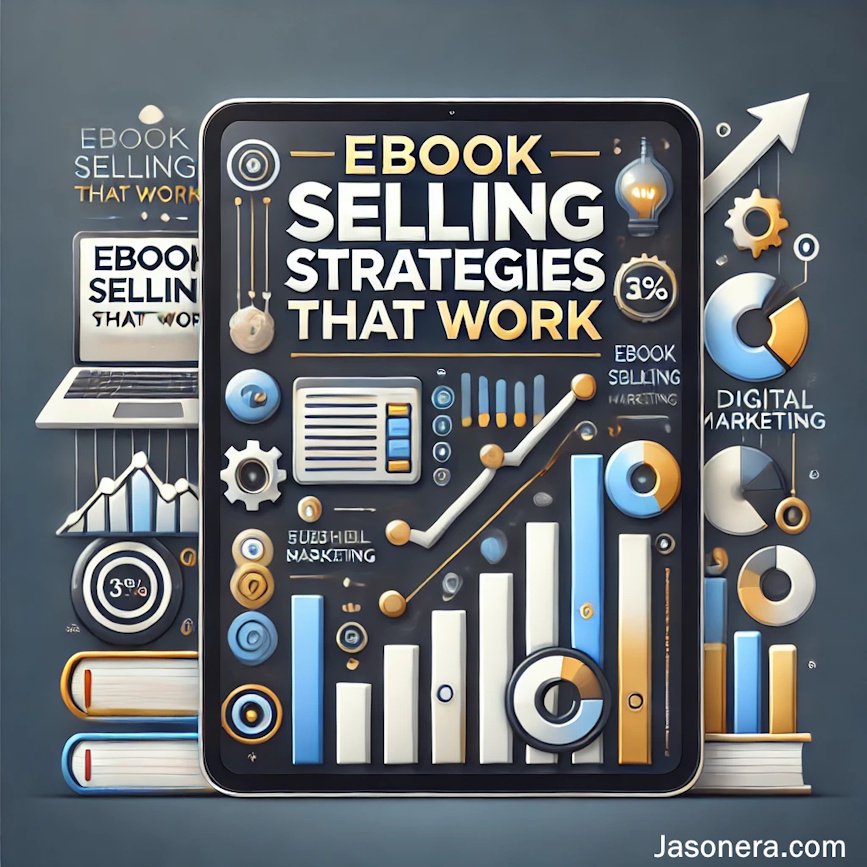2. Building And Selling Digital Products
How Wirecutter Uses Affiliate Marketing To Boost Profits
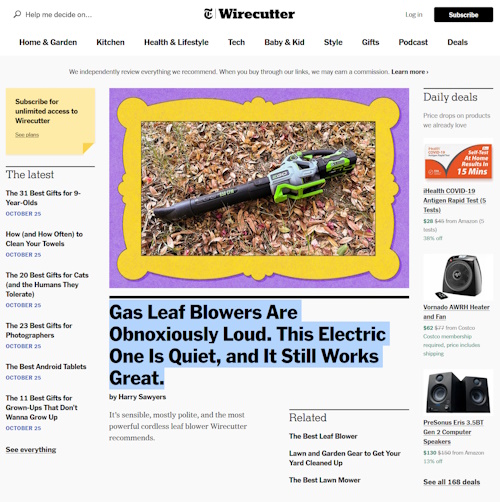
Cool but probably clickbaity title right? Well, actually no, Wirecutter actually does really well with affiliate marketing (coupled with other ads and subscription).
This is what the site is about according to the New York Times 2022 Annual Report (which the NYT is the parent company):
"Our Wirecutter product, which generates affiliate referral revenue (revenue generated by offering direct links to merchants in exchange for a portion of the sale price upon completion of a transaction) in addition to advertising and subscription revenue."
So do we know how much the NYT makes with Wirecutter?
Digital other revenues, which consist primarily of Wirecutter affiliate referral revenue, digital licensing revenue, and television and film revenue, totalled $114.6 million 2022. Other revenues increased 8.1% in 2022 compared with 2021, primarily as a result of higher Wirecutter affiliate referral revenues [that was shown on the front page of the NYT.com].
So it seems Wirecutter is a money maker for the NYT. Its traffic generation seems to be (obviously) related to sales. With more direct- onsite referral increasing the conversion?
In the 2023 report, they suggest:
Our affiliate referral revenue is affected in part by seasonal patterns in consumer spending, with generally higher affiliate referral revenue in the fourth quarter due to higher consumer spending
It is also really worthy to note that:
"Other revenue increased 13.8% year-over-year as a result of continued strength in licensing and
Wirecutter affiliate referral revenues."
Clearly Wirecutter is doing awesome things to revenue. So how can we copy it?
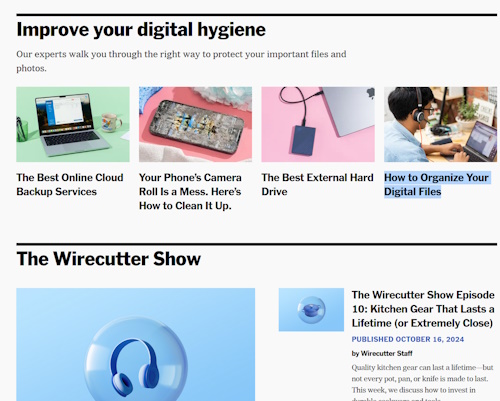
What you see straight away is a clean pages with hints of NYT format. There are a ton of links and pictures covering a whole range of topics which range from:
- The latest
- Deals
- Improve your digital hygiene
- The Wirecutter podcast
- Home
- Electronics
And it goes on with each topic nicely sectioned away from each other.
So, we are assuming that the newest articles get placed within the categories. It is interesting to see what is given first/ homepage views. Digital hygiene is quite high, podcast then Homeware.
Titles are also informative (with detailed targeted user) but curious as well.
- How To Organise Your Digital Files
- 31 Best Gifts For 9 Year Olds.
- The 11 Best Gifts For Grownups That Don't Wanna Grow Up
- The Best Waffle Maker
- 23 best Gifts For Photographers
- These Durable Cotton Sheets Feel More Expensive Than They Are. They've Been Our Budget Pick Since 2016
- Gas Leaf Blowers Are Obnoxiously Loud. This Electric One Is Quiet, and It Still Works Great.
Notice that there's a number of tips. Like with cost and pricing, the number of tips looks like they have been checked. People don't want any waffle maker. Waffle makers seem to do one job- make waffles. So why buy any, you want the best- so the title is specific for a certain item.
The problem with leaf
blowers? Noisy- so here's a remedy and still works well. So they have
identified an issue people have with leaf blowers but also that people
are skeptical about electric ones being powerful. So
the audience member is being qualified before they click on the link
reducing the click away's and increasing the time on page.
There is a search bar which has a revolving "how can we help text".
It is also nice that you don't need a subscription to view anything, there is no payment or email wall to block you from the content.
As most large content creators they state their editors and their background which is helpful for contacting and trust.
Whats the article content like at Wirecutter?
The articles are different to the articles we saw in Forbes Vetted.
These are very long form content with a comment section. Just a thought, but could it be that Forbes audience want information quick and NYT is more deeper read style of content and audience? Or have they both tried the others content strategies and found these work for their audience?
We can't go through all the articles because they are long. So lets just take one in a competitive niche: The Best External Hard Drive
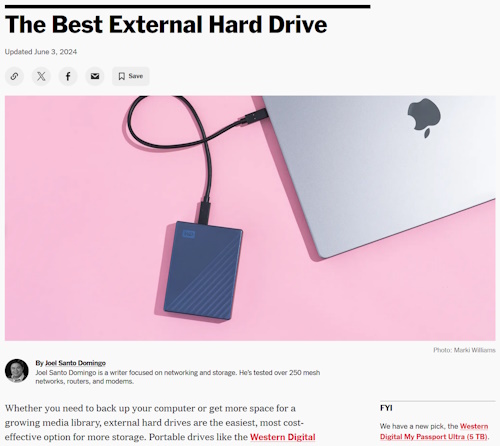
What do we have?
- Big picture (above) of the product being used
- Editor/ writer and their bio
- Intro and even a link to the product
- All product links are red. Which is also similar to Vetted, so maybe red is a good link colour to buy products?
- We have another "top pick" picture with affiliate links to Amazon or Walmart
- The article then has links to different sections
- Why we should trust their opinion
- How we picked
- How we tested
- How about if you wanted something different
- The competition
- Comments- which also help sales as people add supportive knowledge, items that they think is the best (people will also search on Amazon or Walmart and maybe the NYT cookie is still active whilst they do this?)
There is a lot of text and close up pictures to break up some of the text.
Within Google (using Firefox and in Canada) the term: best external hard drives without quotes comes up with:
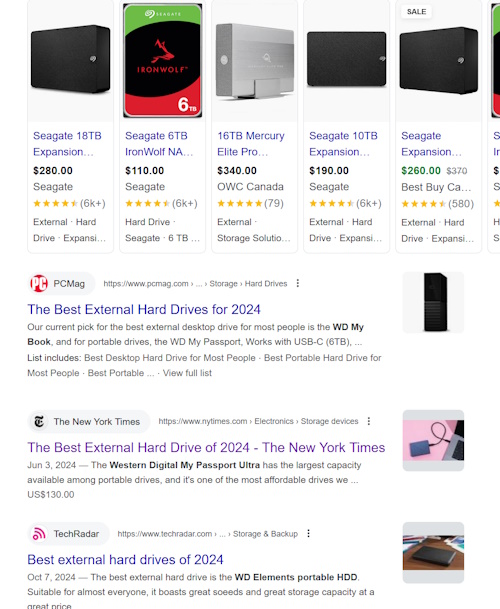
Technically Google Sales first, then PCMag and Wirecutter.
When we quote the term we find that Wirecutter comes fourth with PCMag first.
On the page we also get a newsletter sign up- in blue, black and white:

No idea how many people sign up for "very good deals" and daily recommendations. But maybe:
- Specifics in how good are the deals (percentage wise) would help?
- Are you emailing the electronics deals or general deals?
How does Wirecutter handle the legal implications of affiliate selling?
Again we have the link to tell people about their commissions with a nice lead in sentence on the top of each page:
We independently review everything we recommend. When you buy through our links, we may earn a commission
The About Us page lists how Wirecutter started, which is cool. It gives a nice outline- with again, not focusing on monetary gain. There's:
- Internal links
- Pictures of the editors around a table
- Get in contact and ask about a product to be reviewed (which seems to be a staple thing to do)
- There are also links to different pages on how Wirecutter gets deals, makes money etc. Each link is filled with information. I like the makes money link as it talks about affiliate marketing and commissions. But, if the product is returned they don't make money and they lose the persons trust. Its a nice way to put it.
Got to ask though.
It seems like Wirecutter is reliant upon traffic- obviously. And NYT has stated that when Wirecutter was on its front page for a year the revenue generated from the website increased by some percentage. I looked today (27th October 2024) and it was 3/4 down the page:
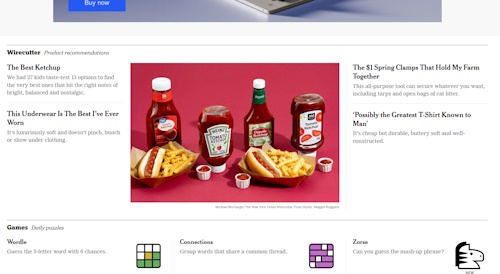
It is by the games (which also have a huge audience and bring in profit), so does one help the other? Now, can not tell if they do but why not link relevant articles to an affiliate link, or have your own ads on the site- or do you get more revenue from those ads?
This is what some affiliates don't do. Test to see where their sales are coming from. If they are coming from one page then you crank up that page and give it love. You also see why that page is so good and try to repeat it throughout your site.
Also, if one page is not converting with ads then why not try an affiliate product- within text and even create banners with that affiliate product?
Updates? Check out the Jasonera blog.
More case studies can be found here.
About. Updates. Disclaimer. Privacy. Mission/ Vision. FAQ. Newsletter.
Copyright © 2024- Jasonera.com All rights reserved








